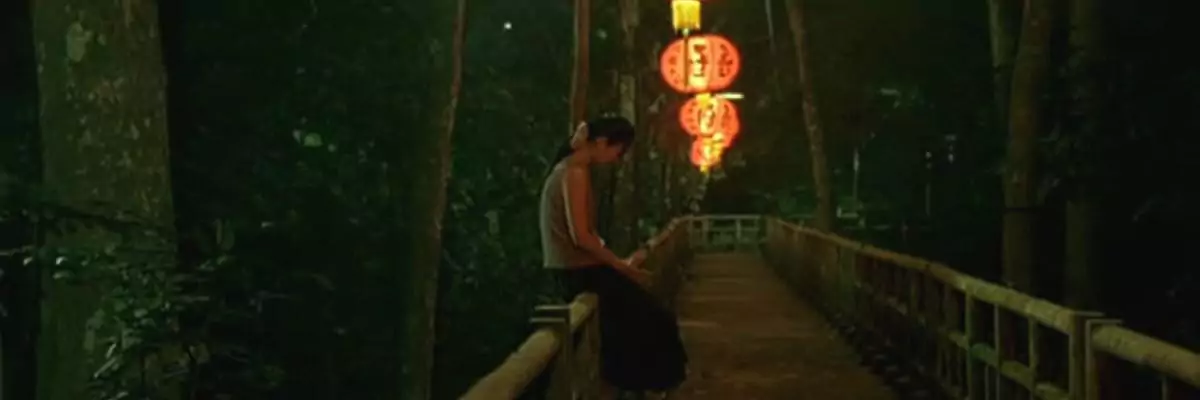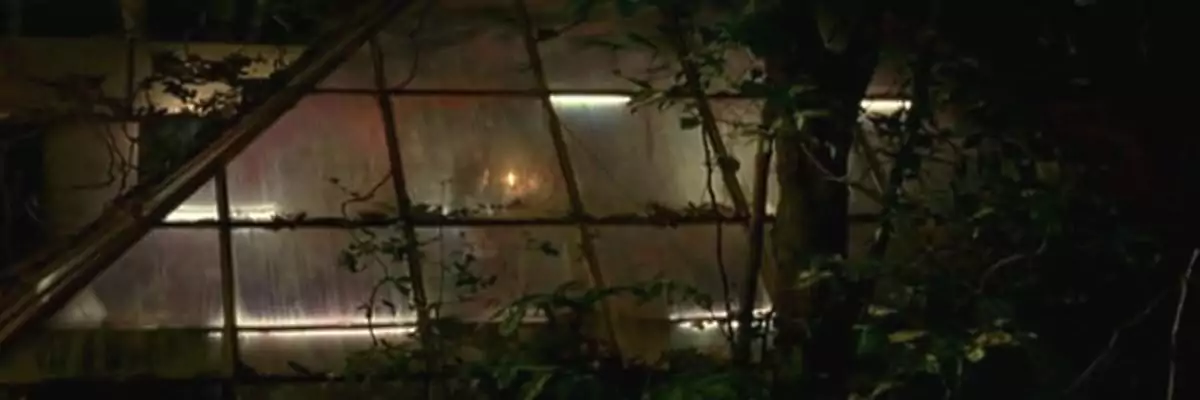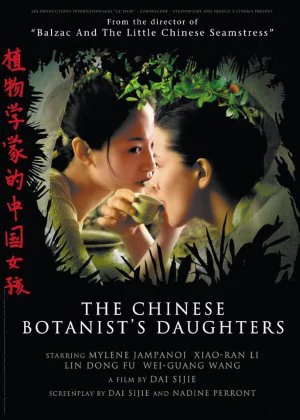The Chinese Botanist's Daughters
Ten years ago I managed to catch Sijie Dai's The Chinese Botanist's Daughters [Les Filles du Botaniste] in a local theater. Back then that was still a reality, nowadays it's almost unimaginable to go see a Chinese film (or even China-related, like this one) in a movie theater. Ten years is a long time though and I honestly couldn't remember too much of this little gem, except that I liked it a lot. I hadn't seen the film since, so it felt like an appropriate time to revisit my favorite Dai.

Even though The Chinese Botanist's Daughters takes place in China, the film is listed as a French-Canadian co-production. Not too surprising when you know that Sijie Dai relocated himself from China to France at a relatively young age, but I imagine the subject matter also played some part in the decision. The film is quite critical of China's stance on same-sex relationships and that critical attitude is exactly the kind of thing that can get you banned from making films in China. I guess Dai just didn't want to be bothered too much with censorship perils.
While the production has the feel of a genuine Chinese film, Dai shopped around and rounded up a more international crew, with some French picks (soundtrack, cinematography and lead actress) and a few Vietnamese actors in secondary roles. A risky move as the film might have lost some of its impact should it have come off as an outsider's critique, but except for the casting of Mylène Jampanoï Dai is pretty successful in hiding the film's international roots.
The film follows Min Li, a young orphan who gets selected for a prestigious internship in one of China's most renowned botanical gardens. Once there Li runs into An Chen, the daughter of the botanical master. The two grow fond of each other, but they also realize their love has to be kept secret from their surroundings. When the master's son returns, Li figures that marrying his son is her best shot at staying inside the botanical gardens after finishing her internship. But leading a double life isn't as easy as she imagined.

The cinematography was handled by Guy Dufaux, who did a truly amazing job. He had of course the luxury of working in a magnificent setting, but even then the film looks stunning. With overwhelming dark greens and piercing reds (a popular Chinese color scheme) and subtle, hypnotizing camera work the visuals construct a magical place that feels like it exists in a reality of its own. It just oozes atmosphere, which makes the drama that more accessible.
The soundtrack too is top notch. It resembles the music of Jianqi Huo's films, blending traditional Chinese sounds and instruments with smooth, relaxing ambient. It creates a very solemn, soothing atmosphere that goes hand in hand with the visuals. It's clearly an outlier in composer Eric Levi's oeuvre, but he handles it with deceptive ease. Not the most memorable of soundtracks maybe, but a very strong and loveable one nonetheless.
Aside from the ending, the casting is probably the most controversial element of the film. Even though Mylène Jampanoï is half-Chinese, she really doesn't look the part. It takes a bit of getting used to, but she does well with her character. That said, I wouldn't be too surprised if they picked Jampanoï mainly because she feels comfortable doing nude scenes. For some reason those very scene didn't end up destroying Xiaoran Li's career, but it's nonetheless a very risky move for a Chinese actress.

The Chinese Botanist's Daughters might be a very gentle, subdued and soothing experience, the final act is pretty brutal. Not in presentation, all its gruesomeness happens off-screen, most of it is just implied and Dai doesn't even linger for maximum sentimental impact, but the vileness is unmistakeably there. It's a deeply tragic ending, but it never comes off that way. A rather unique feat that I can't really link back to any other film I've seen. I'm sure it's quite polarizing, but I loved it.
Sijie Dai made an impressive film. Its gentle nature might make it a little too inconspicuous, it never really demands to be loved and cherished, it's also a film that quickly drifts to the back of your mind, but it's a powerful experience and one that keeps its value even after multiple viewings. It's a film without any obvious weak points and with plenty to love, but I guess it just misses that little sparkle that makes people put it into their lists of absolute favorites. Still a very worthy recommend though.
